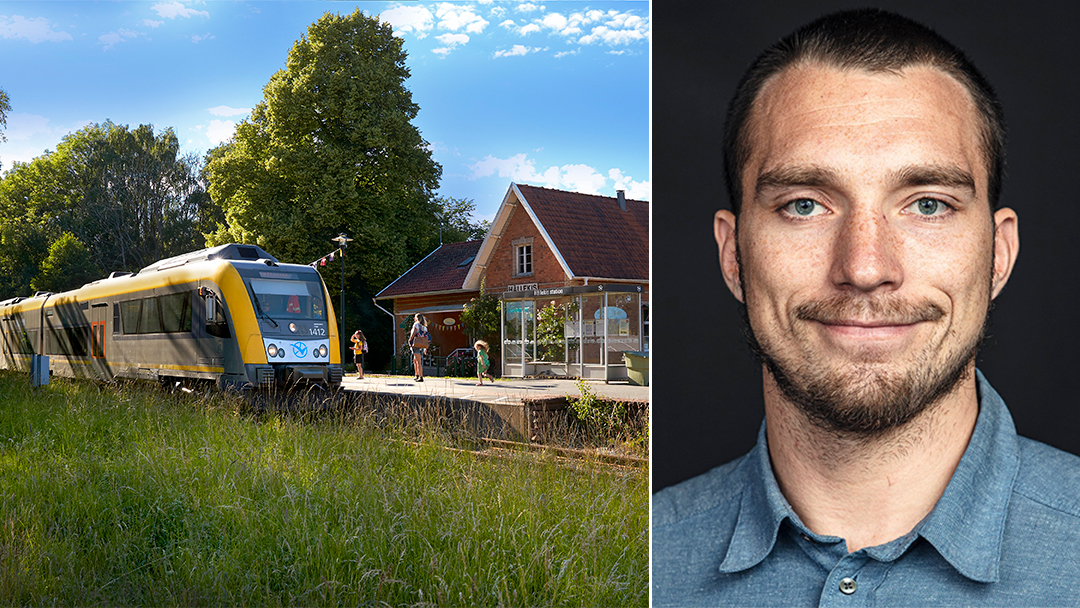CBH students investigate hydrogen supply to trains

Could hydrogen be used to power the Kinnekulle train? The municipality of Mariestad wanted to find out – so they turned to eight master's students from the CBH School.
”It has been great to do a project where the results can really make a difference,” says Erik Östling from the program Chemical Engineering for Energy and Environment (TKEMM).
The Kinnekulle line runs between Gårdsjö and Håkanstorp in Västra Götaland. The route, which in 2018 was named Sweden's most beautiful train journey by SJ's passengers, is un-electrified and the locomotives are powered by diesel. The ElectriVillage Mariestad project is investigating whether the trains could instead be run on hydrogen and how the supply would then work. This is where the CBH students in the course Process Design for Industry and Society, came in.
”We analyzed how much hydrogen gas would be needed to replace some of the old trains, where it was best to have electrolysers, filling stations and renewable energy production. An important condition was also that the system should be off-grid,” says Erik Östling.
In their results, the students compared different ways of supplying the trains with green hydrogen via electrolysis from wind or sun and how the filling stations should be located. Production at a location combined with a hydrogen station in Hällekis, north of Kinnekulle, proved to be the most economically advantageous alternative.
”The result was surprisingly good. Our system limit was to sell the hydrogen to an actor who drives the traffic, and the revenue was thus about selling the products hydrogen and oxygen. With our assumptions, the project resulted in a profit of several million, seen over the life of the project,” says Erik Östling and continues:
”I hope that the work leads to the project becoming a reality in the future! There are many parts that need to be figured out, such as investigating the cost of buying hydrogen trains and driving them. No matter what, the work shows that there are good opportunities to produce hydrogen in an economically sustainable way!”
Text: Jon Lindhe
For more information, contact Professor Per Alvfors at alvfors@kth.se

